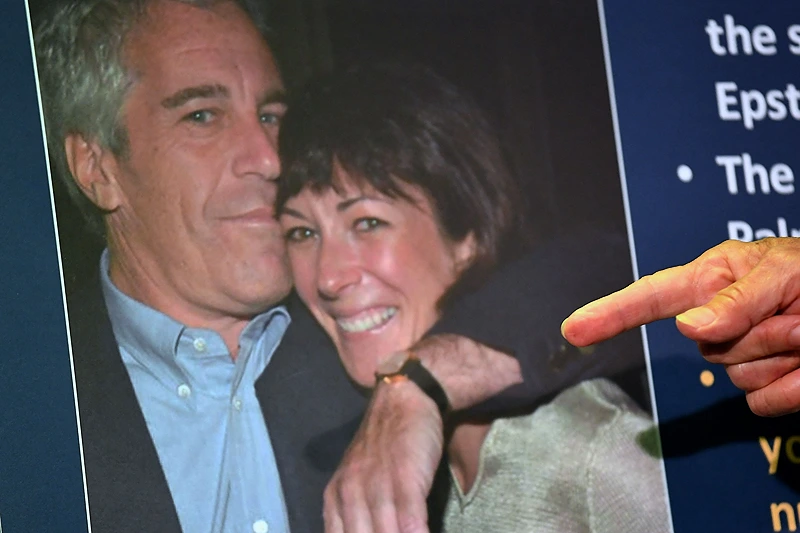
OAN’s Brooke Mallory
3:05 PM – Tuesday, June 27, 2023
According to a report released on Tuesday by the Justice Department’s Office of the Inspector General, staff at the prison where Jeffrey Epstein was held while awaiting trial on federal sex trafficking charges committed “significant misconduct,” including potentially criminal behavior, creating conditions that allegedly allowed him to commit suicide in 2019.
The report asserted that employees at the Metropolitan Correctional Center in New York failed to assign Epstein a new cellmate after he was placed on suicide watch.
The staff also reportedly failed to adequately supervise the Special Housing Unit where he was held prior to his death and failed to ensure the facility’s security camera system could record video, among other errors.
“The combination of negligence, misconduct, and outright job performances failures documented in today’s report all contributed to an environment in which arguably one of the most notorious inmates in BOP’s custody was left unmonitored and alone in his cell with an excess of prison linens, thereby providing him with the opportunity to take his own life,” said Michael Horowitz, the Justice Department’s inspector general.
However, many online users have already expressed skepticism regarding the surfacing report, alluding to theories and beliefs that the Epstein scandal was part of a larger operation involving governmental forces, and that his and Ghislaine’s very affluent and influential clients orchestrated Epstein’s murder so that he would not be able to testify or give any names.
According to the investigation, Epstein was granted special amenities that were not made available to other detainees, such as the chance to make unmonitored, unrecorded phone calls, which occurred on August 9th, the night before he died.
The investigation noted that Epstein was allowed to use an unrecorded phone line used by detainees to call their attorneys after meeting with his lawyers that night. He allegedly informed a prison guard that he wanted to contact his mother, who died in 2004, but then dialed a number with a “646” area code.
A prison employee informed the inspector general that a man first answered the phone call, and then he handed the receiver to Epstein.
The individual that Epstein spoke to, who is not mentioned by name but is characterized as female in the report, declined to be questioned by the inspector general, but the unnamed woman’s lawyer notified the Manhattan U.S. Attorney’s office that she was in Belarus at the time of the call.
The unnamed woman’s attorney claimed that Epstein discussed with her how the “press had gotten crazy,” and they also discussed personal things such as “books, music, and hygiene” while incarcerated.
Regarding the reported “special accommodations,” Epstein was discovered to have amassed “excess” linens, with mounds of orange linens scattered across the floor and on many mattresses, as shown in an image of his cell provided in the investigative report.
According to the attendant who discovered Epstein’s body, Epstein had “an orange string, presumably from a sheet or a shirt, around his neck that was tied to the top portion of the bunkbed.”
While the report does not explain the reason why Epstein was given accommodations while other inmates were not, one inmate voiced to the inspector general that corrections officers “were on ‘eggshells’ around Epstein” and that if officers had denied his requests, he would threaten to report them to his lawyer.
Tova Noel and Michael Thomas, two prison employees who were on duty in the Special Housing Unit the night Epstein died, had previously been accused of manipulating prison records. However, those accusations were eventually dropped when they completed their deferred prosecution agreements.
The investigative report discovered four other personnel who either fabricated fake documents, had a “lack of candor,” or made false statements in connection, all of which could result in criminal charges.
The U.S. Attorney’s Office in Manhattan declined to prosecute the workers who were discovered to have created fraudulent documentation. It is still unclear if the employees accused of “lack of candor” or those making fraudulent claims will face punishment.
A spokeswoman for the United States Attorney’s Office in Manhattan did not immediately respond to a request for comment.
While a plethora of theories have swirled around Epstein’s death since 2019, the medical examiner in New York City “confirmed” that Epstein died by suicide, and the FBI claimed that it was not the consequence of a criminal act.
According to the inspector general’s report, “While the OIG determined MCC New York staff engaged in significant misconduct and dereliction of their duties, we did not uncover evidence contradicting the FBI’s determination regarding the absence of criminality in connection with Epstein’s death.”
The inspector general offered eight suggestions to the Bureau of Prisons, including implementing a protocol for assigning a cellmate following suicide watch or psychiatric monitoring, and the bureau agreed.
The MCC has been closed down since late 2021, when the DOJ stated that it required renovations.
Update: Removed the word “very” from 5th paragraph.
Stay informed! Receive breaking news blasts directly to your inbox for free. Subscribe here. https://www.oann.com/alerts

